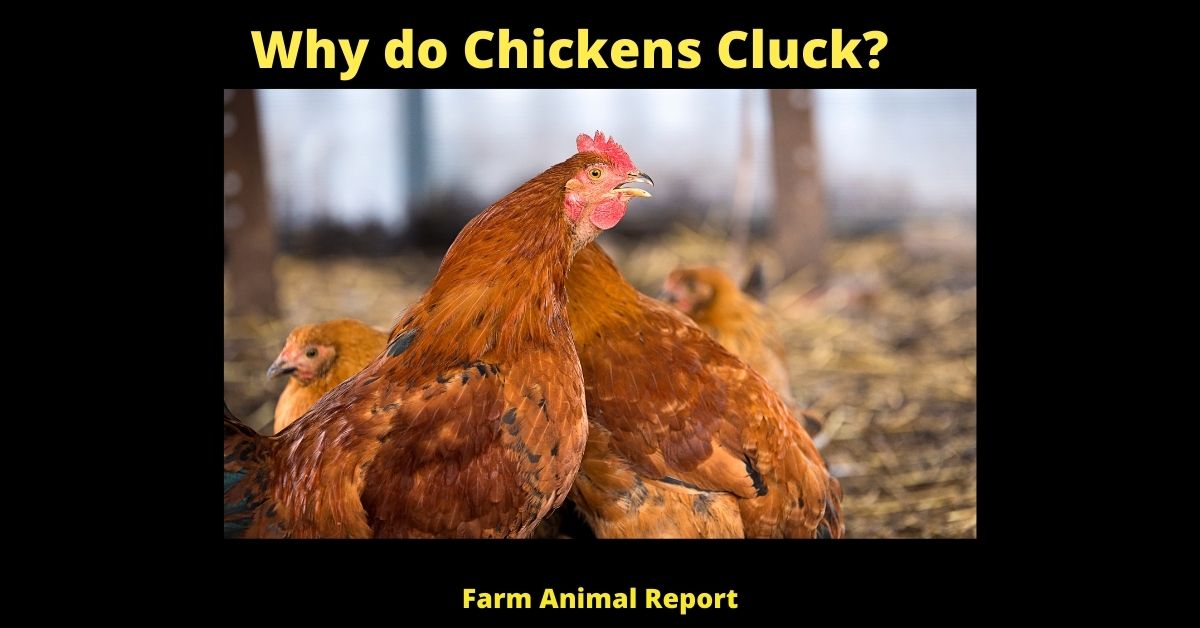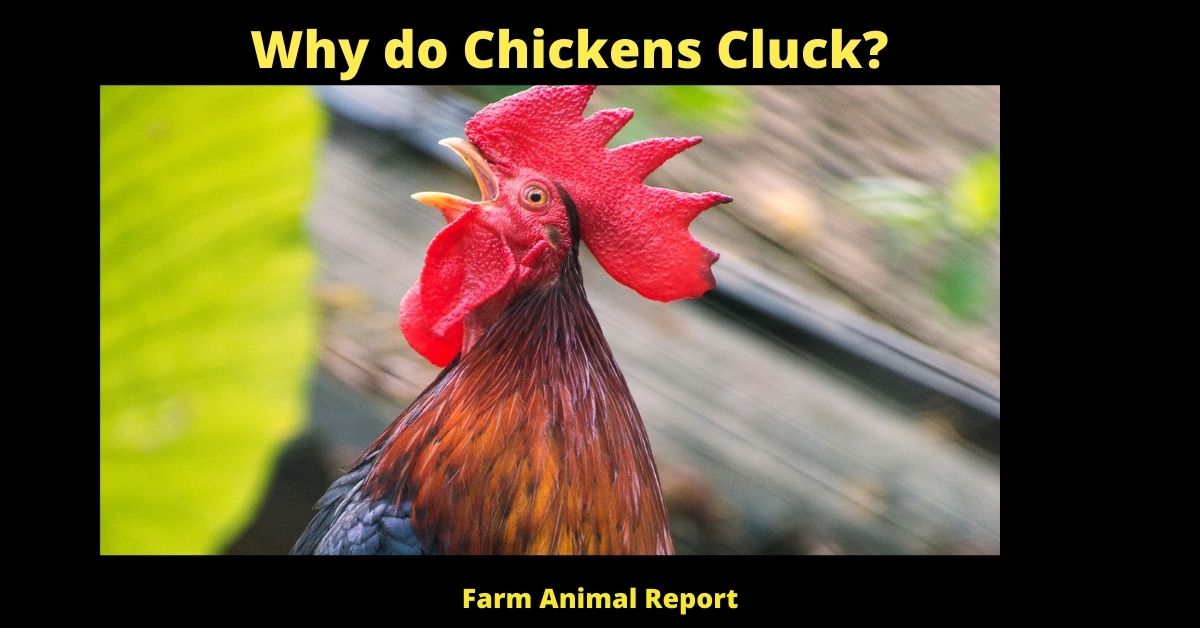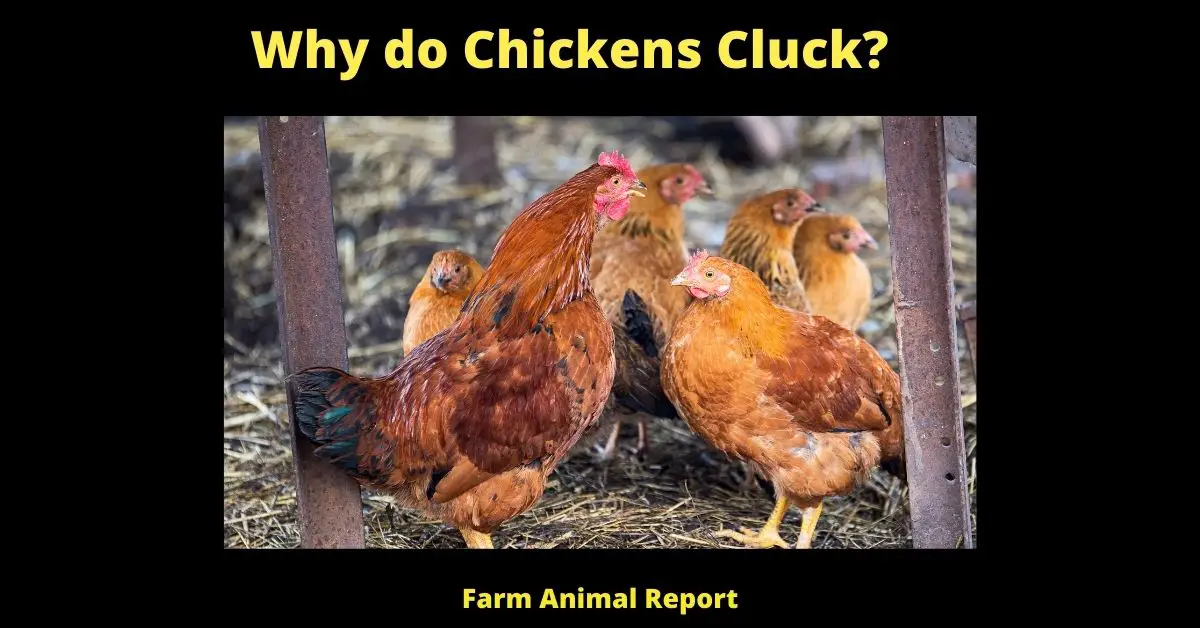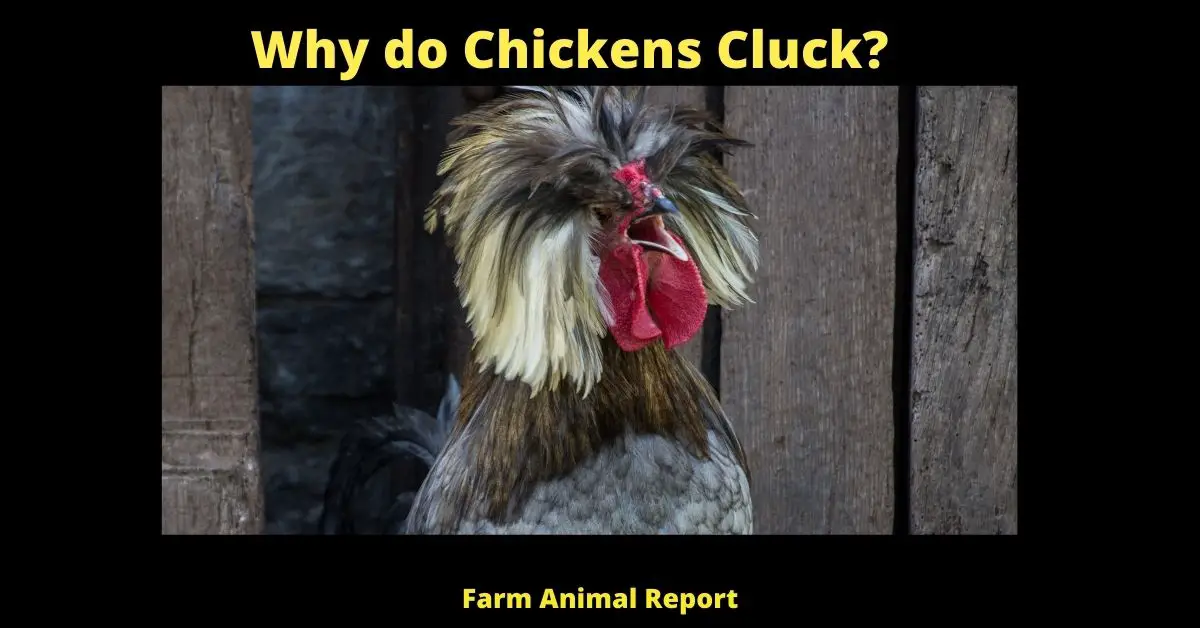The most common chicken vocalization is the “cluck”. Clucking is used as an all-purpose signifier, it can mean “hello”, “goodbye”, or even just that the chicken is content.
Why do Chickens Cluck?
Do you ever wonder why chickens cluck? It’s actually a very interesting question! Chickens cluck for a variety of reasons, including to communicate with other chickens, to show excitement, and to alert others of danger. In this blog post, we will explore the various reasons that chickens cluck and how it affects their behavior. We will also discuss some of the implications of chicken clucking on modern society. Stay tuned!
What is Chicken Language?
The sounds that chickens make their communication. Each sound has a different meaning and purpose. Chickens use over 30 distinct vocalizations to communicate with one another. The most common chicken vocalization is the “cluck”. Clucking is used as an all-purpose signifier, it can mean “hello”, “goodbye”, or even just that the chicken is content. Why do Chickens Cluck? Jump to 12 Ways to Make Money by Chicken Farming **CHARTS**
Other popular chicken vocalizations include:
Crowing – Crowing is usually only done by roosters, and it serves as a way to announce their presence to other chickens (and potential mates). It can also be seen as a way of asserting dominance over other roosters.
Purring – Purring is usually done by hens, and it’s generally seen as a sign of contentment (similar to a cat purring).
Squawk – A squawk is usually a sign of alarm, and it can be used to warn other chickens of potential danger.

Chicken Body Language
Chickens also communicate through body language. Some common examples of chicken body language include:
- Head Bobbing – Head bobbing is usually a sign of submission, and it’s often done in response to another chicken (usually a rooster) crowing.
- Wing Flapping – Wing flapping can be used as a way to assert dominance, or it can simply be a chicken’s way of stretching its wings.
- Preening – Preening is usually done by hens, and it’s a way of keeping their feathers clean and healthy. It can also be seen as a sign of affection if one hen preens another.
So why do chickens cluck? Clucking is just one small part of chicken communication. It’s an all-purpose signifier that can be used in a variety of situations. Whether they’re saying hello, goodbye, or just expressing contentment, chickens will often cluck to get their point across.
What are Chicken Language Gestures?
The body language of chickens is quite amazing and they have many different ways of communicating their feelings. here are a few examples:
- Frightened: when chickens are frightened, they will make themselves small by tucking in their heads and fluffing out their feathers to make themselves look bigger.
- Calm: when chickens are feeling calm, they will hold their heads up high and their feathers will be smooth.
- Hungry: when chickens are hungry, they will peck at the ground or anything else that looks like food.
- Pain: when chickens are in pain, they will cry out and may even stop moving altogether.
- Alarm: when Chickens are alarmed, they will make a loud noise known as crowing and they will also spread their wings to make themselves look bigger.
- Calling Chicks: when hens want to call their chicks, they will make a soft clucking noise.
- Calling Hens to lay: when roosters want to call hens to lay eggs, they will make a louder clucking noise. Chickens are fascinating creatures and it is amazing how much they can communicate with just a few simple gestures!
What Vocalizations do Roosters Make?
Roosters have their own language that they use to communicate with one another. Some of the things they may say include:
- Wanting to Mate: Males will often crow loudly when they see a female that they are attracted to. This is often referred to as ‘courtship crowing’.
- Find Water: Roosters will sometimes make a low clucking sound when looking for water. This helps them conserve energy, since roosters can lose a lot of moisture through their beaks and lungs.
- Find Food: When searching for food, roosters will make a soft pecking noise.
- Protect the Flock: A rooster will sometimes make a loud warning call if he detects danger near the flock. This can help to keep the chickens safe.
- Warn the Flock: If a rooster sees or smells something that he thinks might be a threat, he will often make a loud ‘alarm call’. This lets the other chickens know to be on alert.
- Crowing – Territorial: Roosters will sometimes crow loudly in order to show dominance over other males or to mark their territory. This can be heard up to one mile away!
While all of these vocalizations are important, the most well-known sound that roosters make is definitely crowing. Crowing is used by males as a way of announcing their presence and showing off their prowess.

What Sounds do Broody Hens Make?
Broody hens will make a variety of clucking and soft cooing sounds. This is their way of communicating with other hens and letting them know that they are on the nest, incubating eggs. Broody hens may also hiss or snap at other hens who come too close to the nest. When a hen leaves the nest to eat or drink, she will usually give an “all clear” call to let the others know it’s safe to come closer.
When do baby chicks start making noise?
Baby chicks start making noise within a few days of hatching. They make a variety of cheeping and peeping noises as they learn how to communicate with each other. The louder and more persistent the chicks are, the more likely they are to get the attention of their mother. Chicks will also make soft ‘contentment calls’ when they are warm and comfortable.
What sounds in Flock Language (Pecking Order)
There is an established social hierarchy among chickens, and they communicate their status to other flock members through various sounds. The most well-known chicken sound is probably the “cluck,” which is used for a variety of purposes. Chickens also make a “purr” sound when they’re content, and a softer “tuk tuk tuk” when they’re searching for food.
The social order of a flock is known as the pecking order, and it’s very important to chickens. The pecking order determines who gets to control the shelter, who controls the food, and who gets the best perches. Lower-ranking chickens will often yield to higher-ranking ones, even if they don’t want to. This helps keep the peace in the flock and prevents fights from breaking out.
- Who Controls the Shelter – The chicken who controls the shelter is typically the highest-ranking member of the flock. This chicken gets to choose where everyone else sleeps, and can often be seen perched atop the roost at night.
- Who control’s the Food – The chicken who controls the food is usually second in line, just below the chicken who controls the shelter. This chicken gets to choose what everyone else eats, and can be seen picking through the feeder or scratching around for bugs.
- Who gets What Perch – The lowest-ranking chicken in the flock is typically at the bottom of the pecking order. This chicken often has to make do with whatever perches are left over and will sometimes have to sleep on the ground.
Why do Chickens Cluck in the Morning?
You can hear chickens clucking from early in the morning until late at night. But why do they do it?
Chickens cluck for many reasons.
They cluck to communicate with other chickens. Chickens use different sounds to communicate different things. For example, they might make a soft “tut-tut-tut” sound when they’re happy, or a loud “cock-a-doodle-doo” sound when they see something interesting.
Chickens also cluck when they’re scared or angry. The sound of chickens clucking can be annoying to some people, but it usually means that the chickens are healthy and happy.
If you have chickens that are making too much noise, there are a few things you can do to help reduce the noise.
First, make sure they have plenty of food and water. Chickens that are well-fed and hydrated are less likely to make noise.
Second, give them some toys to keep them occupied. Toys like balls or mirrors can help redirect their attention away from making noise. Finally, provide them with a comfortable place to sleep where they won’t be disturbed by outside noises. By following these tips, you can enjoy the sound of chickens clucking without being annoyed by it!
Why do Chickens Cluck at Night?
Chickens will cluck at night for the same reasons they cluck during the day. They might be communicating with other chickens, or they might be scared or angry.
- Safe – If a chicken is out in the open and sees or hears something that scares it, it will cluck to warn the other chickens.
- Angry – If a chicken is angry with another chicken, it might cluck as a warning.
- Communicating – Chickens often communicate with each other by clucking. They might be asking where someone is, or telling the others about something they’ve found.
- Egg Laying – Chickens will sometimes cluck when they lay an egg. This might be to let the other chickens know that they’ve laid an egg, or it might be because they’re in pain.
- Noisy Chickens – If you have a chicken that is making too much noise, there are a few things you can do to stop it.
- First, try to figure out why the chicken is making so much noise. Is it because it’s scared or angry? If so, try to make the environment less scary or dangerous for the chicken. If the chicken is communicating with other chickens, try to separate them so they can’t see or hear each other.
- If the chicken is laying eggs, you can try to collect the eggs as soon as they’re laid. This will help to stop the chicken from clucking. You can also give the chicken something to do, like providing it with a toy or some food that it has to peck at.
- If none of these things work, you might have to get a noise-canceling machine to stop the chicken from clucking. These machines can be expensive, but they might be worth it if your chickens are keeping you up at night.
Why do Chickens Crow?
Chickens will crow to communicate with other chickens. They might be announcing that they’ve found food, or warning other chickens of danger. Chickens will also crow when they’re happy or excited. For example, a rooster might crow after finding a mate.
They also crow at dawn and dusk. This is called the “dawn chorus” and it’s thought to be a way for chickens to communicate with each other about their day.
So, if you hear a chicken crowing, it could mean any number of things!

Chickens Squawking Loudly
Chickens will squawk loudly when they’re scared or angry. The sound of chickens squawking can be annoying to some people, but it usually means that the chickens are healthy and happy.
Why do Chickens cock-a-doodle-doo
Chickens will make this sound when they see something interesting. This is the sound is described as a rooster crows. It is also a way of chickens to communicate with each other.
Chickens will make this sound to let the others know that they have found something good to eat.
Cock-a-doodle-dooing is also a way of chickens to scare away predators. When they see or hear something that scares them, they will start making this sound to warn the others.
Do Chickens cluck before Laying Eggs?
Chickens will cluck before laying eggs as a way of communicating with other chickens? They might be telling them that they’re about to lay an egg, or asking for help.
Why do Chickens Cluck after Laying an Egg?
After they’ve laid an egg, chickens will usually cluck as a way of saying “I did it!”. It’s a way of celebrating their accomplishment.
How to Stop Noisy Chickens?
If you have noisy chickens, there are a few things you can do to help reduce the noise.
First, make sure they have plenty of food and water. Chickens that are well-fed and hydrated are less likely to make noise.
Second, give them some toys to keep them occupied. Toys like balls or mirrors can help redirect their attention away from making noise. Finally, provide them with a comfortable place to sleep where they won’t be disturbed by outside noises. By following these tips, you can enjoy the sound of chickens clucking without being annoyed by it!
Final Thoughts – Why do Chickens Cluck?
Chickens are interesting creatures that have a variety of sounds that they use to communicate. While some of these sounds can be annoying, they usually indicate that the chicken is healthy and happy. If you have noisy chickens, there are a few things you can do to help reduce the noise. By following these tips, you can enjoy the sound of chickens clucking without being annoyed by it!





